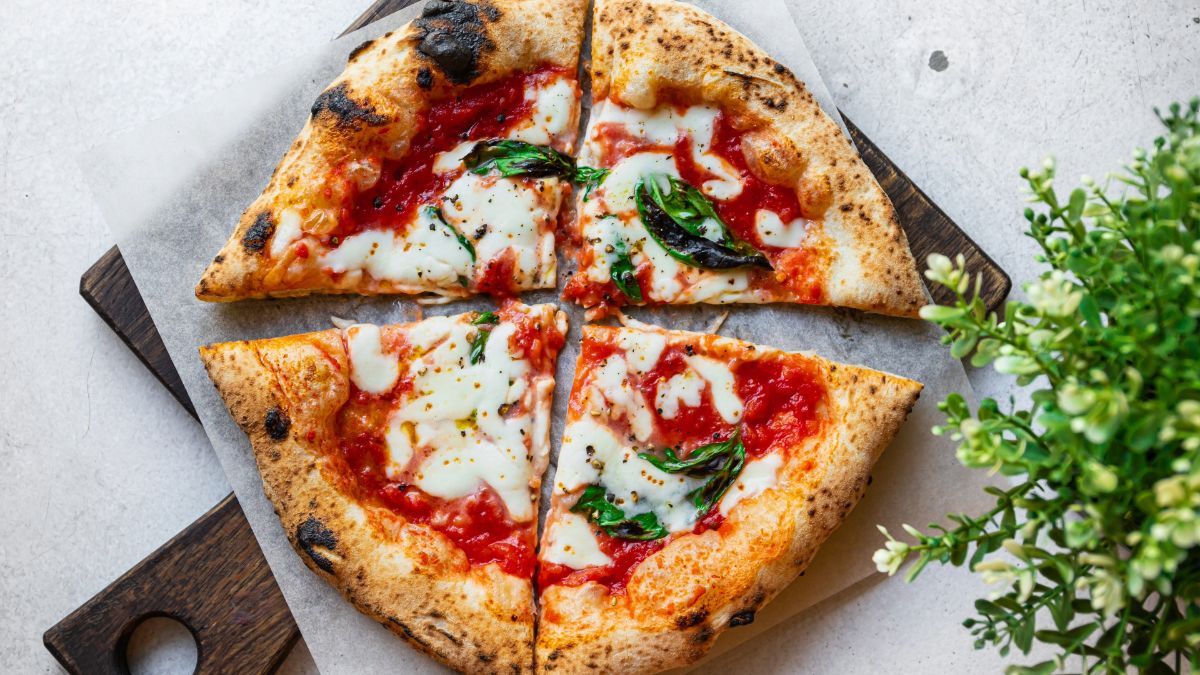
Why Neapolitan-Style pizza is considered the gold standard?
Pizza, a beloved dish enjoyed worldwide, comes in many varieties. However, among pizza enthusiasts and culinary experts, Neapolitan-style pizza is often hailed as the gold standard. This traditional Italian pizza has a rich history and unique characteristics that set it apart from other styles
Origins of Neapolitan pizza
Historical roots
Neapolitan pizza originated in Naples, Italy, in the 18th century. It was initially a food for the working class, prized for its simplicity and affordability.
Cultural significance
In 2017, UNESCO recognized the art of Neapolitan pizza as an Intangible Cultural Heritage of Humanity, highlighting its cultural importance.
Critical characteristics of Neapolitan pizza
Simple ingredients
Authentic Neapolitan pizza is made with just a few high-quality ingredients: San Marzano tomatoes, fresh mozzarella cheese, fresh basil, and extra-virgin olive oil.
Thin crust
The pizza base is characteristically thin in the centre with a puffy, chewy crust around the edges, known as the “cornicione.”
Quick cooking time
Neapolitan pizzas are cooked at high temperatures (around 430-480°C or 800-900°F) for 60-90 seconds.
Dough – the foundation of excellence
Specific flour type
Neapolitan pizza dough is made with finely ground 00 flour, which gives the crust its distinctive texture.
Minimal ingredients
The dough contains only flour, water, salt, and yeast. No oil or sugar is added, allowing the natural flavours to shine.
Long fermentation
The dough is typically left to rise for at least 8-24 hours, developing complex flavours and a light, digestible texture.
Versatility within tradition
Classic varieties
While the Margherita (tomato, mozzarella, basil) and Marinara (tomato, garlic, oregano) are the most traditional, Neapolitan pizza allows for creativity within its strict guidelines.
Seasonal adaptations
Many Neapolitan pizzerias offer seasonal variations that showcase local, in-season ingredients while maintaining the traditional style.
Global influence
Inspiration for other styles
Many modern pizza styles draw inspiration from Neapolitan techniques, adapting them to local tastes and ingredients.
Training programs
Neapolitan pizza-making techniques are taught in culinary schools worldwide, spreading the tradition and maintaining high standards.
Certification and standards
Associazione Verace Pizza Napoletana (AVPN)
This organization certifies pizzerias worldwide that adhere to the traditional Neapolitan pizza-making methods, ensuring authenticity and quality.
Protected status
Neapolitan pizza has been granted Traditional Speciality Guaranteed (TSG) status in the European Union in the European Union, protecting its traditional recipe and production methods.
Neapolitan pizza experience
Visual appeal
The sight of a perfectly crafted Neapolitan pizza, with its blistered crust and vibrant toppings, is visually striking and delicious.
Aroma
The scent of freshly baked dough melted cheese, and aromatic basil creates an enticing sensory experience.
Eating ritual
Folding a slice or cutting into the pizza with a knife and fork becomes part of the enjoyment, encouraging diners to savour each bite. Neapolitan pizza’s status as the gold standard of pizza is well-earned through its rich history, strict adherence to tradition, and emphasis on quality ingredients and craftsmanship. Its influence on global pizza culture is undeniable, inspiring pizza makers and enthusiasts worldwide.
Numerous resources are available for those intrigued by the art of Neapolitan pizza-making and eager to read more about its techniques, history, and cultural significance. Food enthusiasts and aspiring pizzaiolos can delve deeper into Neapolitan pizza, exploring its nuances and perhaps even trying to create this beloved dish at home.



